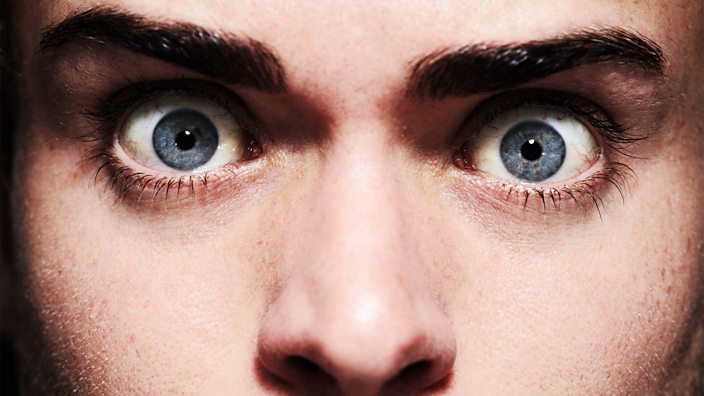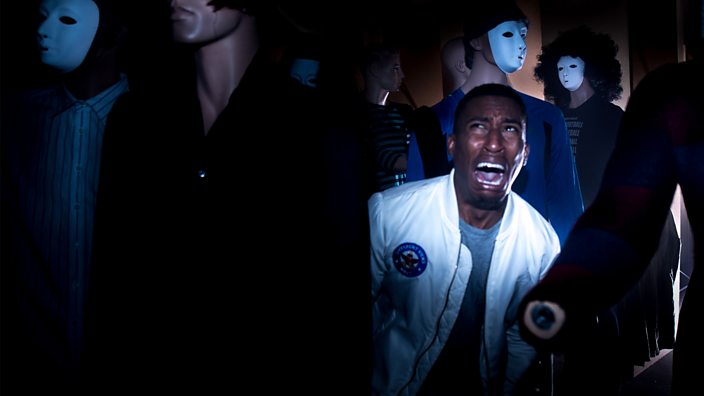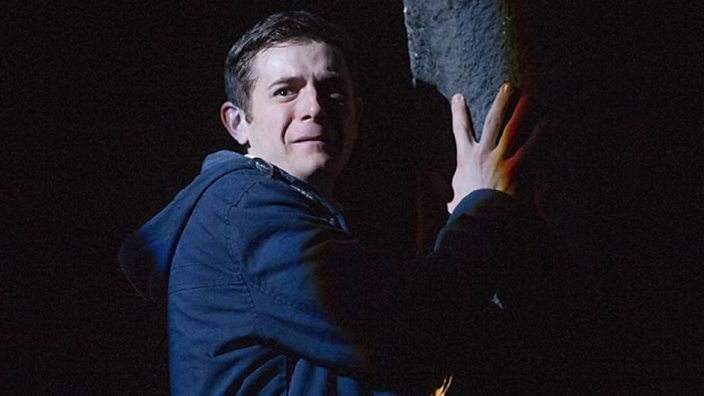As BBC Three show Don't Scream launches, fear experts break down the psychology behind the things that make us scream
Harvey Day
 Getty / PeopleImages
Getty / PeopleImages
Spiders? Clowns? Really tall buildings?
There
are lots of things that might make you scream — but why is it that we
get so scared and what can we do to control these fears?
The new BBC Three reality show Don't Scream, hosted by YouTuber and comedian Yung Filly, will challenge three contestants to stifle their shrieks to win a cash prize.
This
got us thinking about the psychology of being scared. So, here five
fear experts explain exactly why we get so scared, what different types
of scare there are and how to face up to your fears.
Why do we get scared?
"It's
evolutionary, it's biological and essentially it's about survival,"
says Dr Warren Mansell, a psychologist at the University of Manchester
and author of a book about coping with fear.
"Our bodies need a way of getting ourselves prepared to either escape or defend ourselves against some kind of threat."
"Being
able to recognise and respond to a threat quickly and to get away is
essential," adds sociologist Dr Margee Kerr, who specialises in the
study of fear. "It's definitely kept us humans alive."
The
most common way we deal with fear is the "fight-or-flight" response,
when your heart rate increases and your pupils dilate. "Everything is
there to get you ready to either flee from whatever is threatening you
or to fight back," says Dr Mansell.
There's
also the startle response — when you jump out of your skin — which is a
way to get yourself away from something when you haven't got the time
to even work out what it is, but it's coming at you very suddenly and
very loudly.
 BBC THREE
BBC THREEWhat different types of 'scare' are there?
First
up, there's the classic jump scare, explains Andy Nyman, co-creator of
the long-running London horror stage play Ghost Stories, which was also
turned into a 2017 film starring Martin Freeman. "Often people think
that's a bit of a cheap thing to do but the reality is that it's
actually quite a sophisticated thing to pull off.
"If
you can get it right, misdirecting an audience properly and then giving
them a jump scare is a really wonderful thing because you're properly
catching them off guard."
Then,
Andy goes on, there's the type of scare that you can't shake off.
"These are the scares that are attached to imagery or a moment that
means when you close your eyes that's all you can see. These are much
deeper-rooted."
Mike
Muncer, who hosts a weekly podcast about terrifying horror movies, adds
that when it comes to frightening movies, the scariest are often the
ones that leave us feeling unsettled.
"The
best horror films are the ones where you can't explain why they're so
scary. The Shining is a film that I find terrifying and I don't even
know why.
"Why is it that the long empty hotel corridors or a little boy riding round on a tricycle are so scary? I don't know!"
He
adds: "The best horror films give you that uncanny sense that even
though nothing horrific is happening on screen, you've just got this
feeling that something's wrong."
How do you make the perfect scare?
"It's
about a mixture of elements — from music to lighting to special
effects — that come together to create the 'perfect' moment," says Andy.
And
Andy, who has just completed the technical run-through for the UK tour
version of Ghost Stories, adds: "There's a lot of joy in playing around
with little variables like bringing the lights up a little bit and
lowering the sound slightly. It's like focussing a camera to find the
perfect, terrifying moment.
"And
then we get to put that in front of an audience to see if we're right.
And, my god, when you have 900 people in an audience screaming with
terror it's really special to think that all those technical, forensic
details came together to create something that shakes them to their
core."
And
Don't Scare's resident fright expert Antony White, who's worked in the
industry for 10 years, says it's key to build scares for all the senses.
"You could build, for example, the experience of a scary butcher's shop
in a black room with just the sounds of buzzing flies, the smell of
rotten meat and maybe even sticky floors."
 Ghost Stories
Ghost StoriesIf you're someone who gets scared easily, how can you control your relationship with fear?
If you're a very jumpy person who gets scared easily (or if you have a specific phobia,
a severe form of fear that impacts on your life), there are things you
can do on your own and with a therapist to help you improve, according
to Dr Mansell.
"The
first thing is to realise that it's best to take things at your own
pace and that may mean you don't need to face that fear right now but
you're going to do it when you're ready."
Most
things that frighten people can be broken down into smaller, more
manageable sections, the psychologist says. "If you're afraid of
heights, for example, you can start with being just 10 centimeters off
the ground and if that means you're only a tiny bit less anxious than
before, then that means you're going in the right direction."
And Dr Kerr has some practical tips, too, including exposure therapy, cognitive behavioural therapy and
breathing exercises. "Another effective method to deal with a racing
heart and panicky emotions is to move your body to channel all of that
energy into a more controlled movement, so it feels like you have some
sense of control," she adds. "Even doing jumping jacks can help."
But
then again the chances of seeing a spider dressed as a clown on top of a
very tall building are probably quite slim - so maybe you don't need to
worry too much after all!
Don’t Scream is available on iPlayer.

No comments:
Post a Comment